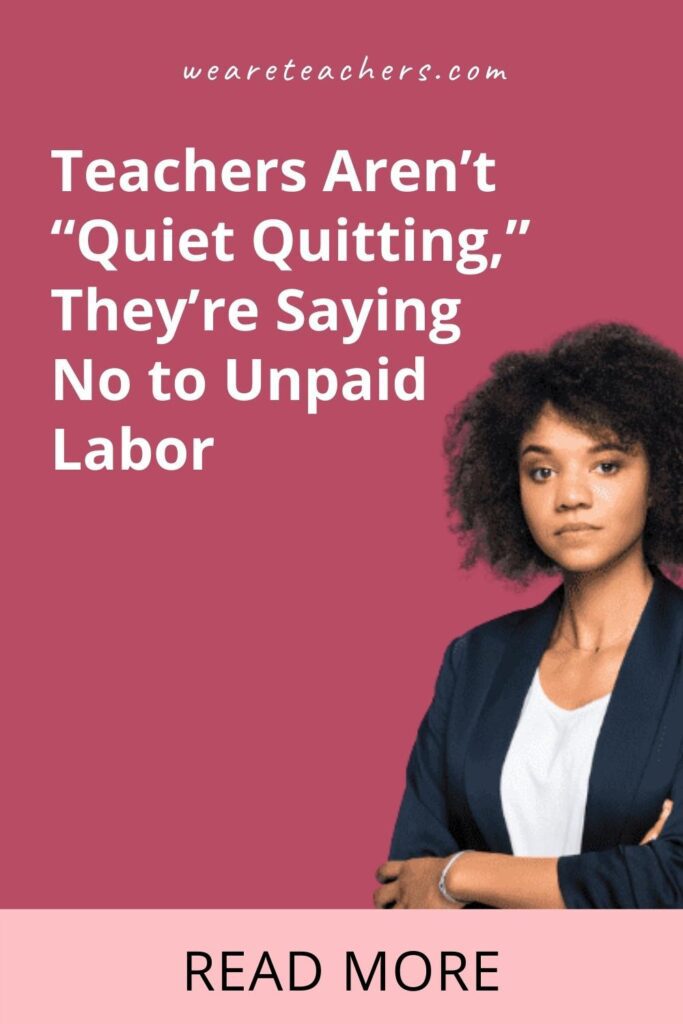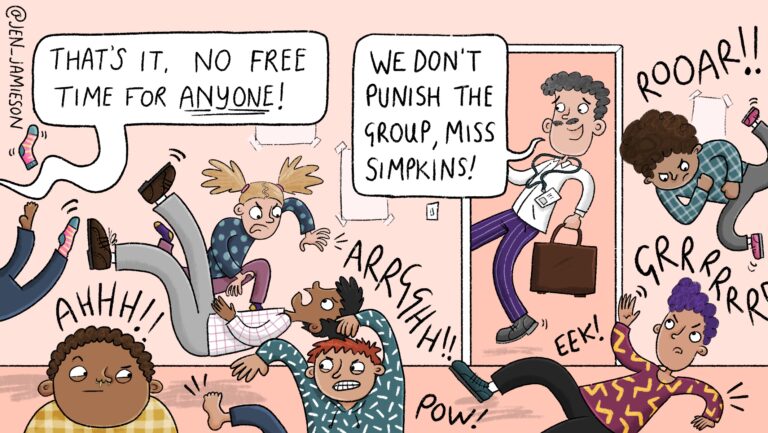From the desks of the Wall Street Journal to the wild algorithms of TikTok, it seems like everyone is talking about quiet quitting.
The term “quiet quitting” refers not to actually quitting a job, but refusing to go beyond what one is paid to do.
People who quiet-quit still perform their job duties, they’re simply rejecting hustle culture, doing tasks that fall outside of their job description or pay, and the notion of tying their work performance or achievements to their self-worth.
I was especially intrigued by Business Insider’s article on teacher Maggie Perkins, who quiet-quit years ago and has never looked back. I applaud how she scaled back what she was spending on teaching both financially and emotionally. (We love boundaries!)
But something has been bothering me about the messaging around quiet quitting. As I read and thought about this trend, I couldn’t help feeling like I was ignoring something big. It felt like I was admiring my lovely new rain parka while hurricane clouds loomed in the distance.
Quiet quitting is helping teachers take care of themselves, re-prioritize their values, and delay burnout—and I’m all for that.
But aren’t we ignoring something larger and more threatening here?
What about the glaring problem that K-12 education in America relies on the unpaid labor, kindness, and guilt teachers have to “do what’s best for kids”? What will happen if teachers (rightfully) scale back their work, but the powers who created and perpetuate this system are never made to reckon with their problematic arrangement: making underpaid, undersupported teachers carry this country on their backs?
I worry that the “market” will recognize the trend of quiet quitting and adapt.
I worry that states will simply extend teachers’ contract hours without paying them more. They’ll find some loophole of calling it “tutoring time” or “office hours.”
I worry that districts will start using contracts to quantify work that teachers previously did on their own time. They might require a certain number of bulletin board rotations per year for elementary teachers. Maybe secondary teachers will have to hit a parent contact quota.
I worry that our communities will continue to glorify the teachers who regularly work beyond their contract hours, prioritize school above family and self-care, and burn themselves into the ground for an institution that has a vested interest in them not demanding more.
Maybe quiet quitting is not the “end move” for teachers, but the starting move in a much larger game plan.
Perhaps quiet quitting is the final message before a nationwide teacher strike.
I said what I said.
For more content like this, be sure to sign up for our free newsletters.


